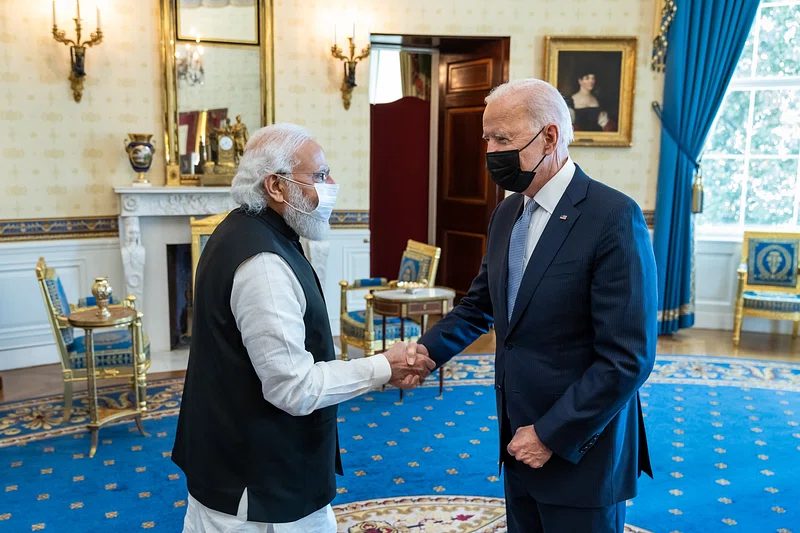The U.S. government met Indian Prime Minister Narendra Modi with the highest possible reception on his state visit to Washington at the end of June. This extravagant level of reception is reserved for foreign dignitaries of the greatest honor, saved only for the U.S.’s closest allies and most important diplomatic meetings. The visit comes as the U.S. seeks to bolster ties with India, hoping to cement the liberal democracies’ decades-long partnership into a full-blown alliance to shore up influence in the region and repel China and Russia, especially in the midst of the Russia and Ukraine conflict.
Despite the pomp, many U.S. lawmakers opposed Modi’s visit, citing human rights violations and the perceived lack of democracy within his government. According to The Diplomat, over 70 Democratic lawmakers signed a letter to U.S. President Joe Biden asking him to question Modi over “independent, credible reports” on India’s shrinking political space and rising religious intolerance. “We do not endorse any particular Indian leader or political party,” the letter added, “but we do stand in support of the important principles that should be a part of American foreign policy.” Former president Barack Obama even weighed into these concerns, telling C.N.N., “If the president meets with Prime Minister Modi, then the protection of the Muslim minority in the majority-Hindu India, that’s something worth mentioning.”
While these sentiments ring strong among U.S. lawmakers, Modi’s state visit ultimately made no substantial progress in securing the religious rights of Muslims within India. Because the visit was not meant to address these concerns directly, it ended with a limited press conference, which is standard procedure for a state visit of this calibre. Modi rarely agrees to unscripted media appearances, which has resulted in the media developing a negative perception of his dedication to democratic values, such as press freedom and human rights.
Regardless, the meeting went on much differently than Democratic lawmakers had hoped. The Diplomat reports that President Biden listened to close advisors well versed with the U.S.-India partnership by overlooking differences over rights and values and focusing on transactional interests, like reducing trade barriers, defense exports to India, and initiatives to wean the country off of coal energy, instead. This marks a new era of the countries’ bilateral partnership, shifting away from a foundation of shared values towards a more strategic, economic relationship, putting the issue of preserving democratic values to pasture.
The Biden administration’s goal during this state visit was to shore up its partnership with India through more emphasis on transactional policies. This is an attempt to push back against China and Russia in a more meaningful way, but it can be argued that this type of push has no substance. If both governments refuse the people’s demand to address concerns of human rights and religious intolerance in a liberal democratic state in favor of discussing more facetious issues, the partnership will lack the shared cultural values that could meaningfully strengthen the bond between their nations.


